Sports Diplomacy

How does sports diplomacy contribute to international relations ?
Sports diplomacy is a form of soft power that uses sports events and activities to foster relationships between nations. It contributes to international relations by enhancing mutual understanding, promoting economic cooperation, and promoting peace and security. Sports diplomacy promotes cultural exchange and builds trust between nations. It also attracts investment, creates job opportunities, reduces tensions, and enhances security cooperation. Overall, sports diplomacy plays a crucial role in building stronger relationships between nations.
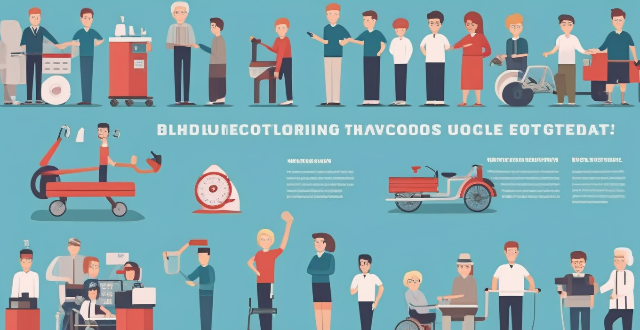
How can sports diplomacy be leveraged to improve relations between nations ?
Sports diplomacy is a powerful tool for improving international relations by using sports as a universal language to break down barriers, promote peace, and foster understanding. This can be achieved through organizing international events and cultural exchange programs, supporting youth exchanges and community-based initiatives, involving influential sports figures in diplomatic missions, and utilizing media and public platforms to engage wider audiences. By leveraging the power of sports, nations can improve their relationships in a constructive and engaging manner, serving as a soft power strategy with far-reaching benefits.

What are the ethical considerations when sports are used in international diplomacy ?
Sports have been used as a tool for international diplomacy, but there are ethical considerations to take into account. These include respecting cultural differences, promoting fairness and equity, avoiding political manipulation, and protecting athletes' rights. By doing so, sports can continue to serve as a positive force for building bridges between nations.
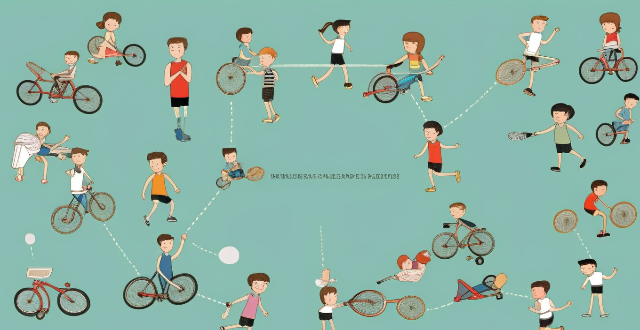
Is it possible for sports to transcend political differences and bring nations together ?
The article discusses the potential of sports to transcend political differences and bring nations together. It highlights three key ways in which sports can achieve this: through competition, cultural exchange, and diplomacy. The power of sports is demonstrated through various examples, such as the Olympics, World Cup, NBA, Formula One, Ping-Pong Diplomacy, and Peace Games. The article concludes that while political conflicts may still exist outside of sports, these activities provide a platform for positive interactions and collaboration that can lead to lasting change.

How does space exploration impact global cooperation and diplomacy ?
Space exploration has been a significant driver of global cooperation and diplomacy since the dawn of the space age. The pursuit of understanding our universe and the quest to explore beyond Earth's boundaries have fostered international collaboration, technological advancements, and diplomatic engagements that transcend traditional geopolitical tensions. In this discussion, we will delve into the various ways space exploration influences global cooperation and diplomacy.
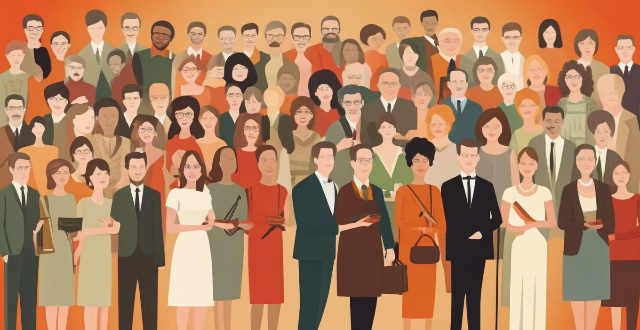
Have there been any instances where sporting events have led to improved diplomatic relations ?
Sporting events have been used to improve diplomatic relations between countries, bringing people together regardless of their backgrounds or beliefs. Examples include Ping-Pong diplomacy in the 1970s between China and the US, soccer matches promoting peace in the Middle East, the Olympic Truce symbolizing goodwill and cooperation, and rugby matches representing reconciliation and forgiveness.

In what ways does sports culture influence political discourse and international relations ?
The text discusses how sports culture significantly impacts political discourse and international relations. It highlights various ways this influence manifests, including promoting diplomacy and peace, fueling nationalism and identity, driving economic development, advocating for social issues, and shaping public opinion through media representation. The article also mentions specific examples such as "Ping-Pong Diplomacy," Olympic Truce, and the involvement of sports figures in peace agreements. It underscores the role of sports in cultural exchange, global marketplace activities, brand promotion, and environmental concerns. Additionally, it touches upon the use of sports for propaganda purposes, controversies like doping scandals, and their effects on international perceptions. Overall, the text emphasizes that sports culture is a potent force intertwined with global dynamics, reflecting and shaping interactions between nations.

In what ways does sports culture contribute to national identity ?
Sports culture significantly contributes to national identity by representing national values, promoting cultural exchange and diplomacy, preserving historical traditions, evoking national pride and unity, and enhancing economic growth. It serves as a powerful tool for uniting people under a common banner and showcasing the unique character of a nation to the world.

Can sports events promote peace between nations ?
Sports events can promote peace between nations by breaking down barriers, fostering cultural exchange, and providing a platform for diplomatic engagement. Historical and modern-day examples show the potential of sports diplomacy, but challenges such as political interference and commercialization must be considered. Overall, sports have the power to bring people together and promote understanding, making them a valuable tool for promoting peace.
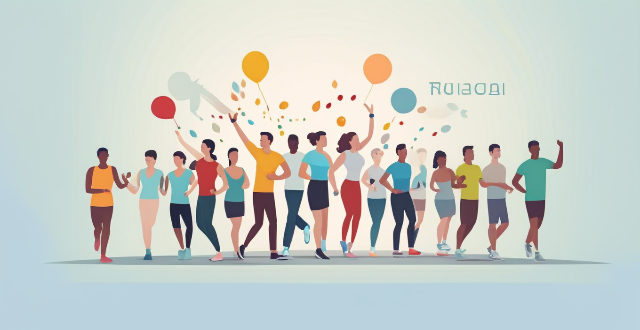
What role do international sports organizations play in fostering global cooperation ?
International sports organizations are crucial for global cooperation, promoting peace, cultural exchange, economic development, health, gender equality, environmental sustainability, and humanitarian aid.

What role do international sports organizations play in promoting peace through sport ?
International sports organizations contribute significantly to promoting peace through various initiatives. These include building bridges and enhancing diplomatic relations by promoting diplomacy and cultural exchange, providing platforms for youth development through empowerment and creating opportunities, advocating for gender equality and inclusivity, contributing to humanitarian efforts like disaster relief and peace missions, and educating about peace and conflict resolution through awareness campaigns and partnerships with peace organizations.

Can sports be used as a tool for soft power and influence in international politics ?
**Sports as a Tool for Soft Power and Influence in International Politics:** **Cultural Diplomacy:** Sports events offer platforms for countries to showcase their culture and history, fostering people-to-people exchanges that can lead to improved diplomatic relations. **Economic Impact:** Major sporting events can boost tourism and attract foreign investment, with infrastructure developments benefiting the host country's economy long-term. **Political Influence:** Sports diplomacy allows for informal discussions between politicians, symbolizing national strength and unity through successful hosting or victories. **Challenges and Limitations:** Considerations include resource allocation concerns, potential for political conflicts during events, and issues of commercialization affecting sports' role in soft power initiatives.

How does sports culture affect the economy, both locally and internationally ?
The text discusses the impact of sports culture on the economy, highlighting its benefits at both local and international levels. It mentions increased tourism, job creation, infrastructure development, and revenue generation as key ways in which sports culture affects the local economy. Additionally, it notes that hosting major sporting events can lead to infrastructure development and improved quality of life for residents. At the international level, the article emphasizes the role of sports culture in global branding efforts, economic growth, and diplomacy. It points out that successful athletes and teams become ambassadors for their countries, promoting national pride and cultural identity. This exposure can lead to increased tourism and investment in the country. Moreover, international sporting events create opportunities for businesses to expand into new markets and foster positive relations between countries through sports diplomacy.

How do cultural exchanges through sports influence international relations ?
Cultural exchanges through sports have a significant impact on international relations by promoting mutual understanding, enhancing diplomatic relations, promoting peace and unity, providing economic and social benefits, increasing globalization, and presenting potential challenges such as nationalism and commercialization concerns. These exchanges foster understanding, build bridges between nations, and contribute to a greater sense of global community.
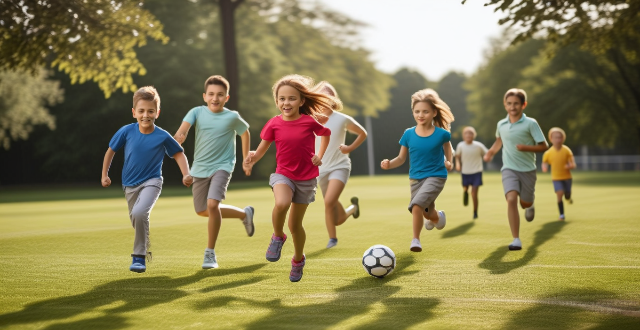
How can sports research and development contribute to overall health and wellness ?
The article explores how sports research and development (R&D) contribute to various dimensions of health and wellness. It discusses the improvements in physical health, such as enhanced fitness levels, weight management, and injury prevention, that can be achieved through sports R&D. Additionally, it highlights the mental health benefits, including stress reduction and cognitive function enhancement, that can result from engaging in sports activities. Finally, the article emphasizes the social well-being aspects, such as teamwork, social skills, cultural exchange, and community building, that sports R&D can promote. Overall, the article concludes that sports R&D plays an integral role in creating healthier societies and supports active and fulfilling lives for people worldwide.

What role do sports play in promoting diversity and inclusion in society ?
The text discusses the various ways in which sports can contribute to promoting diversity and inclusion. This includes breaking down stereotypes and prejudices, highlighting achievements of underrepresented groups, providing equal opportunities, fostering cultural exchange, encouraging respect and fair play, and promoting health and wellness for all. It emphasizes that sports serve as a powerful vehicle for promoting diversity and inclusion in society by breaking down barriers, providing equal opportunities, fostering cultural exchange, encouraging respect and fair play, and promoting health and wellness for all.
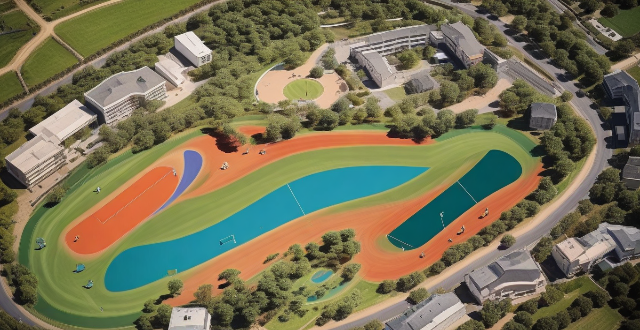
How do sports events like the Olympics contribute to global integration and peacebuilding efforts ?
The role of sports events in global integration and peacebuilding is significant. These events, like the Olympics, serve as platforms for cultural exchange, enhancing international relations, increasing global awareness, promoting peace efforts, and contributing to economic impact and development. Through friendly competition and camaraderie, these events foster a sense of unity and mutual understanding that transcends cultural, political, and economic boundaries. They provide a unique opportunity for the world to come together in a spirit of friendly competition, setting aside differences to celebrate the human spirit of perseverance and achievement. By fostering an environment of mutual respect and understanding, sports events play a crucial role in building a more integrated and peaceful global community.
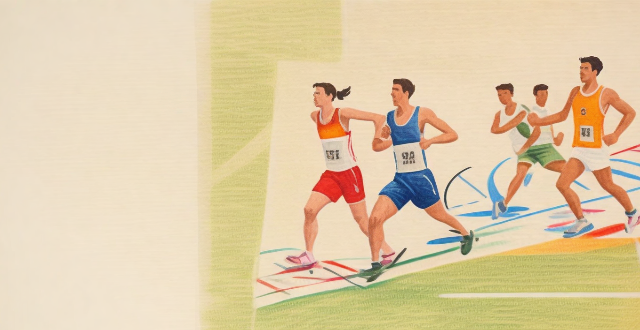
What are some examples of sports events that have promoted international peace ?
This article discusses the role of sports events in promoting international peace and understanding. It highlights the Olympic Games and the FIFA World Cup as two major sporting events that have brought together athletes from around the world to compete in a spirit of friendship, solidarity, and fair play. The article also mentions other events like the Peace and Sport Forum, the United Nations Office on Sport for Development and Peace (UNOSDP), and the Commonwealth Games, which serve as platforms for cultural exchange and diplomacy between participating countries. Overall, the article emphasizes the importance of using sport as a tool for promoting peace and building bridges between nations.

What is the impact of sports tourism on international relations and economy ?
Sports tourism, involving travel for sports events, significantly impacts the global tourism industry. It not only boosts the economy through increased revenue and job opportunities but also enhances international relations by promoting cultural exchange and diplomatic engagement. Sports events serve as platforms for peaceful competition, showcasing a country's soft power and fostering international collaboration.
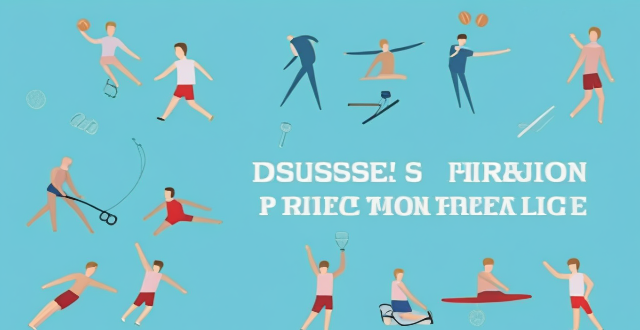
How does sportsmanship contribute to peace promotion ?
The text discusses the role of sportsmanship in promoting peace by fostering respect and tolerance, building teamwork and cooperation, teaching discipline and self-control, serving as a platform for dialogue, and encouraging leadership and responsibility.

How has technology influenced the design of sports fashion ?
Technology has significantly influenced sports fashion design, introducing advanced materials, digital printing techniques, smart wearables, and increased customization options. These innovations have enhanced the functionality, comfort, and style of sports apparel, catering to individual preferences and needs.
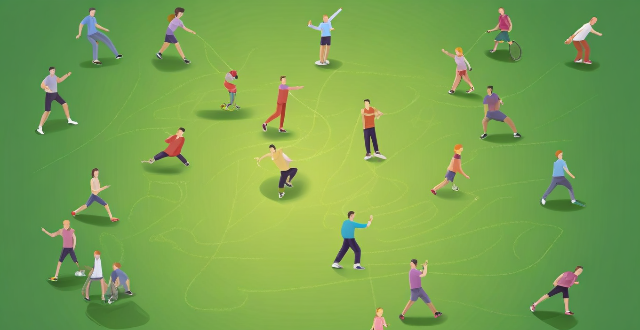
How does sports sponsorship impact the grassroots level of sports and sports development programs ?
Sports sponsorship has a significant impact on grassroots sports and sports development programs by providing financial support, resources, and exposure. Sponsorship money can be used to fund equipment, facilities, coaching, and other essential resources required for the smooth functioning of these programs. Additionally, sponsors often provide high-quality equipment, improve sports facilities, fund professional coaching, and invest in marketing and promotional activities. Sports sponsorship also provides valuable exposure opportunities for grassroots sports and sports development programs, helping them gain recognition, credibility, and attract more participants, fans, and sponsors. Overall, sports sponsorship plays a crucial role in promoting sports participation and contributing to the overall development of athletes and the sport itself.

How does sports medicine help prevent injuries in sports ?
The text discusses how sports medicine helps in preventing injuries in sports by providing athletes with necessary knowledge, skills, and resources for maintaining their health and safety. It outlines key ways such as pre-participation physical examinations, proper warm-ups, strength training programs, correct technique, injury management, and education. These measures aim to identify risks, prepare the body for exercise, enhance fitness levels, promote safe practices, and manage injuries effectively. Overall, sports medicine plays a vital role in fostering a culture of safety and well-being within sports communities.

What is the impact of sports movies on the sports industry ?
Sports movies have a significant impact on the sports industry by inspiring and motivating people, promoting healthy lifestyles, generating interest in different sports, and providing marketing and branding opportunities. These movies can encourage people to pursue their dreams, work hard, and never give up, as well as highlight the importance of physical fitness and healthy living. Additionally, sports movies can generate interest in less popular or well-known sports and provide excellent marketing and branding opportunities for companies involved in the sports industry. Overall, sports movies play an essential role in shaping public perception and attitudes towards sports and physical activity.

How does team sports impact mental health compared to individual sports ?
This article explores how team sports impact mental health compared to individual sports. It highlights the social support and belongingness provided by team sports, which can reduce feelings of isolation and loneliness. The article also discusses how team sports promote accountability and responsibility, helping individuals develop discipline and self-control. Additionally, it emphasizes the importance of goal setting and achievement in team sports, which can boost self-esteem and confidence. Overall, the article concludes that team sports have a significant impact on mental health compared to individual sports due to their social aspect.
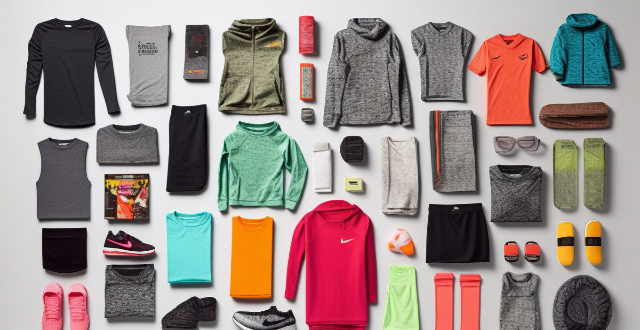
What are the must-have pieces in a sports fashion wardrobe ?
A well-curated sports wardrobe is essential for those who want to look good while working out or running errands. Must-have pieces include athletic shoes, leggings, sports bras, tank tops and t-shirts, shorts and skirts, jackets and hoodies, and accessories like hats, sunglasses, fitness trackers, and water bottles. Popular brands include Nike, Adidas, Reebok, Lululemon, Sweaty Betty, Under Armour, Brooks, Patagonia, Outdoor Voices, Asics, New Balance, The North Face, Columbia, Fitbit, and Hydro Flask.

Can team sports contribute to mental rejuvenation more than individual sports ?
Team sports may contribute more to mental rejuvenation than individual sports due to increased social interaction, motivation, and sense of belonging. However, individual preferences vary, and some people may find greater mental rejuvenation through individual sports or other activities that bring them joy and fulfillment.

How can I find the best deals on sports equipment online ?
Finding the best deals on sports equipment online requires research, patience, and using various strategies. These include comparing prices across different retailers, looking for discount codes and promotions, shopping during sales and holidays, considering buying used or refurbished equipment, and joining loyalty and rewards programs. By following these tips, you can save money while getting high-quality gear for your favorite sports activities.

Can sports supplements improve athletic performance ?
Sports supplements claim to enhance athletic performance, but their effectiveness varies. Common types include protein, creatine, pre-workout, BCAAs, and multivitamins/minerals. Some studies support their benefits, especially when used correctly and in conjunction with proper nutrition and training. However, potential downsides include health risks, unproven claims, and high costs. Consult a healthcare professional before using sports supplements to ensure they align with individual goals and health status.
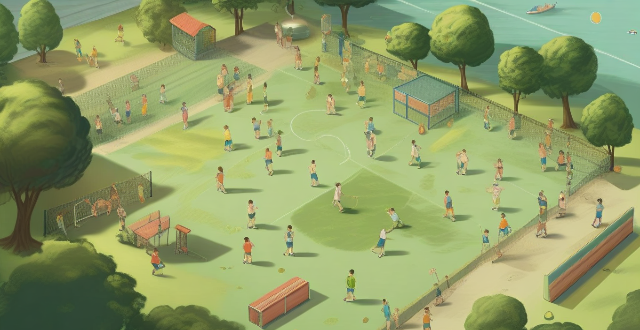
Can I get sports insurance for my child who plays school sports ?
Sports insurance can provide coverage for athletes participating in organized sports, including school sports. Consider factors like age limit, type of sports, level of competition, and coverage details when selecting a policy. Cost, duration, additional benefits, and the application process are also important considerations. While sports insurance offers peace of mind and financial protection, it can be expensive and may have limitations. Evaluate your child's needs and consult with an insurance professional to make an informed decision.